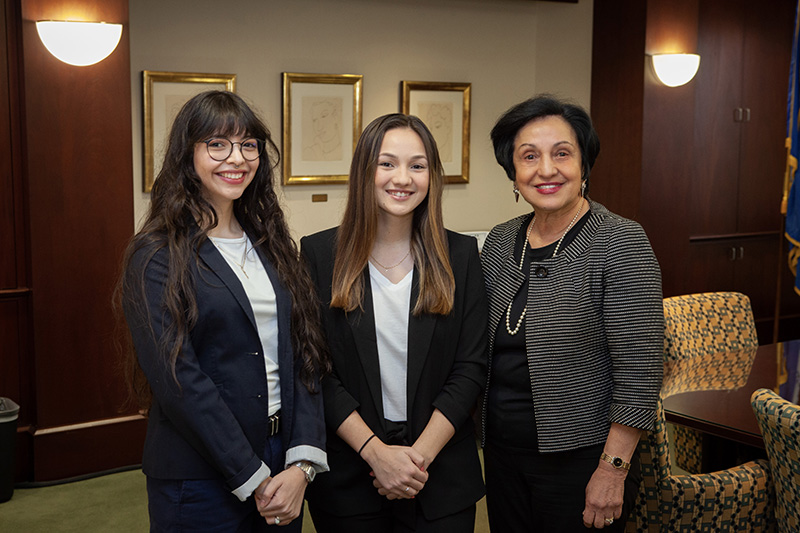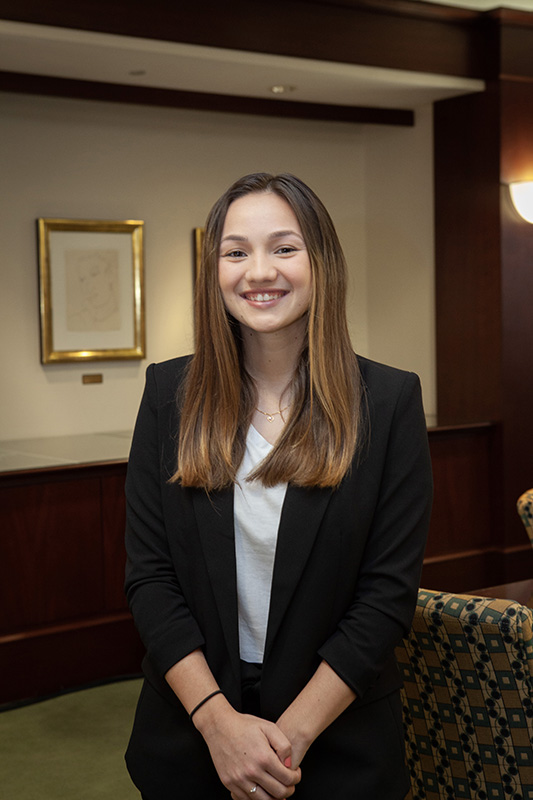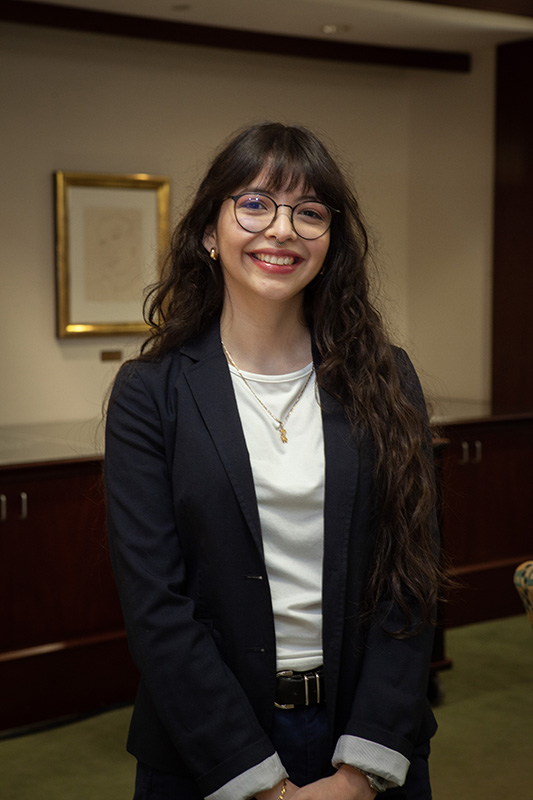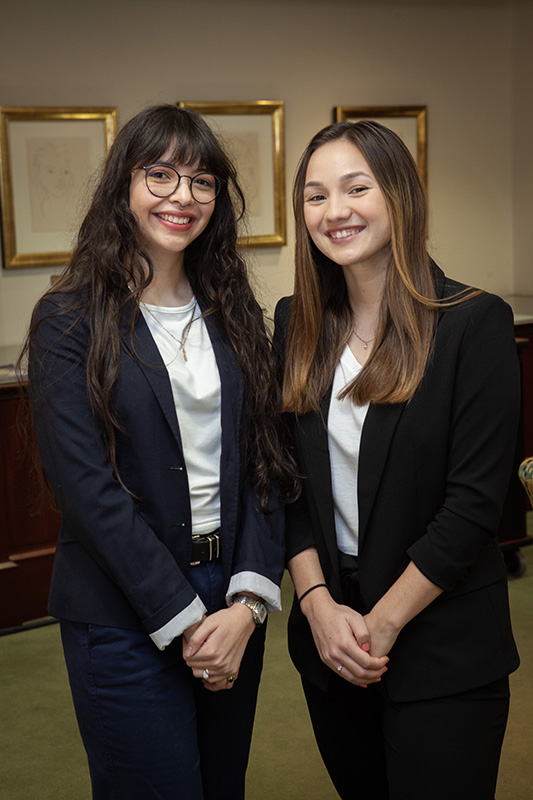- Apply
- Visit
- Request Info
- Give
2 Eastern seniors win CSCU’s top undergraduate award
Barnard award goes to Emily Barata and Judith Arroyo Cervantes
Written by Lucinda Weiss
Published on April 10, 2023

Two seniors at Eastern Connecticut State University, Emily Barata of New Fairfield and Judith Arroyo Cervantes of Manchester, are recipients of the 2023 Henry Barnard Distinguished Student Award, the top academic honor for undergraduates in the Connecticut State Colleges and Universities System (CSCU).
The awards are given annually to 12 students at Connecticut’s four state universities – Eastern, Central, Southern and Western. The students are nominated by their university and its president and awards are based on academic performance and community service.
Arroyo Cervantes majors in psychology and has a 3.85 grade-point average. She has volunteered with Eastern’s Center for Community Engagement in activities such as Relay for Life, Our Companions Animal Rescue, the Third Thursday festival, the mobile food pantry, the COVID testing site and others. She is a Wellness Warrior ambassador at Eastern and a member of Habitat for Humanity.
She has been accepted to Central Connecticut State University’s master’s degree program in counseling and higher education. She hopes to become a mentor for BIPOC (Black, indigenous, and people of color) students.
“I’ve always wanted to help people, which is one of the main reasons why I chose to major in psychology,” she said. She interned with Eastern’s Office of AccessAbility Services as a program coach and was a teaching assistant in psychology for Professor Jennifer Leszczynski and a research assistant for Professor Margaret Letterman. She also won a best poster award at Eastern last year at a psychological science research event.
Barata is a biology major with a 3.93 GPA who has long planned on becoming a physician. An honors scholar and a starter on the women’s soccer team, she has tutored more than 100 students at Eastern in biology, chemistry and physics. She has been in charge of community service for the Student Athlete Advisory Committee at Eastern.
Barata is a volunteer emergency medical technician with the New Fairfield Volunteer Fire Department and has shadowed a physician in the emergency department at Danbury Hospital. She has been accepted at one medical school and is waiting to hear from others. She plans to become a pediatrician.
Her experiences on the soccer team are among her most memorable times at Eastern, Barata said. “It’s definitely taught me to manage my time,” fitting in two hours of practice a day and games. She has done research with biology Professor Kurt Lucin on how microgravity might affect brain health, and she will present her work at a conference later this spring at Quinnipiac University’s medical school.
Besides soccer, she learned karate at an early age. She earned a second-degree black belt and served as a martial arts instructor. Karate “is definitely tough mentally and took a lot of commitment,” she said.
She chose Eastern for its small class sizes, location close to her home and its Division III athletics, which provided opportunities, she said. “My own experiences have taught me that to accomplish something special, one must prioritize their goals,” she said.





